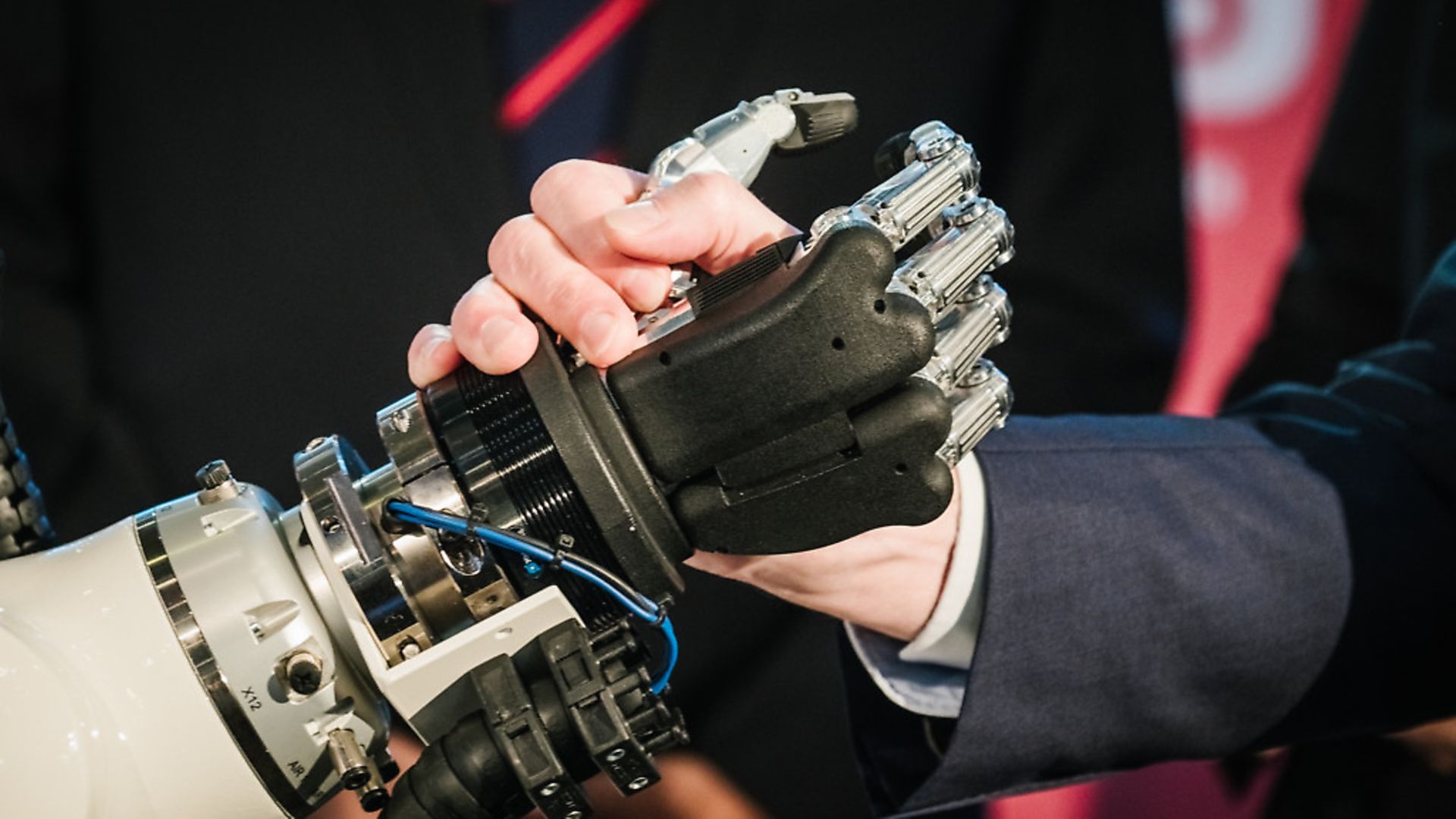
Britain was arguably the birthplace of Artificial Intelligence. But ANGELA JAMESON reveals, we are now losing ground
As heavy weather is made of Brexit negotiations, the government clutches at stories it can spin positively to demonstrate that the sky has not fallen in and Project Fear was groundless.
One area regularly singled out for self-congratulatory epithets is the UK’s fast-growing technology sector, which has helpfully carried on growing and expanding despite dire warnings that it would implode if Brexit ever happened.
This week ministers unveil a long awaited ‘sector deal’ on Artificial Intelligence – or the clever bit of computing, where the machines begin to think like humans and could take all our jobs.
So how is this good news exactly? Well, the UK is pretty much one of the best places in the world for AI, having established a global reputation for it back in the 1950s, when code-breaker Alan Turing began exploring the problem of whether computers could think.
The UK has produced a handful of globally renowned AI companies – DeepMind, MagicPony and Swiftkey – and the government recognises this as one of the few areas it should champion, thereby demonstrating it is genuinely a global, outward-looking and successful economy.
The sector deal, like those deals already agreed for the UK’s creative sector and automotive industries, is a way for the government to funnel some more subsidy into the sector.
The headline-grabbing figure of about £1bn may sound slightly more generous than the reality. Like most government announcements, much of this sum has been allocated for various schemes already.
But there is an urgent need to develop UK AI skills, not least since all of the great companies mentioned above have now been sold to overseas tech giants.
AI matters because it can lead to major economic and social benefits. It holds great potential for increasing productivity in existing industries, which is a pressing need for the UK economy.
It can also create entirely new products and services like Cleo, a financial services advisor that learns its users’ needs, or Exscientia, which uses AI for drug discovery and design. The worldwide market for AI solutions could be worth more than £30bn by 2024.
The country that is rapidly establishing a lead in this field is China. While the US has allowed their major tech companies to drive investment and innovation in this area, China has planted a flag on AI and is using all its protectionist might to make sure it keeps its significant advantage.
In January China said it would build a $2bn technology park in Western Beijing, solely focused on AI, which will become home to about 400 companies. It is urging private, public and military firms to cooperate on national AI goals and wants to make a significant breakthrough by 2025. In effect, the state is explicitly backing and guiding private companies like Tencent.
Academics have noted that there has been a 50% increase in the number of Chinese papers published on AI research submitted to conferences in the last year. And these are only the papers that we know about. The suspicion is that much more research is not shared.
Other states are starting to take notice. Earlier this year France said in future acquisitions of data companies would have to be approved by the state. In contrast, the UK was unable to step in to stop Google buying DeepMind in 2014. British universities have also seen PHD students leaving their studies for six-figure salaries with US tech giants.
Meanwhile, the UK is completely distracted by Brexit and unable to think deeply about this topic. Experts fear we are ceding a lot of leadership.
This week’s AI deal attempts to seize back the initiative, as well as to provide some distraction as the prime minister comes under heavy pressure to reopen the question of Britain’s membership of the customs union.
Ironically, one of the best solutions to the problem of China and the US’s huge lead in this sector is a proposed joint European institute devoted to world-class research – like a CERN for AI.
The European Lab for Learning & Intelligent Systems – or ELLIS – would have major engineering centres in several countries, including the UK.
Somehow this great idea seems destined, at this time, to fall on deaf ears and that’s a huge setback that no deal, however much trumpeted, can make up for.









